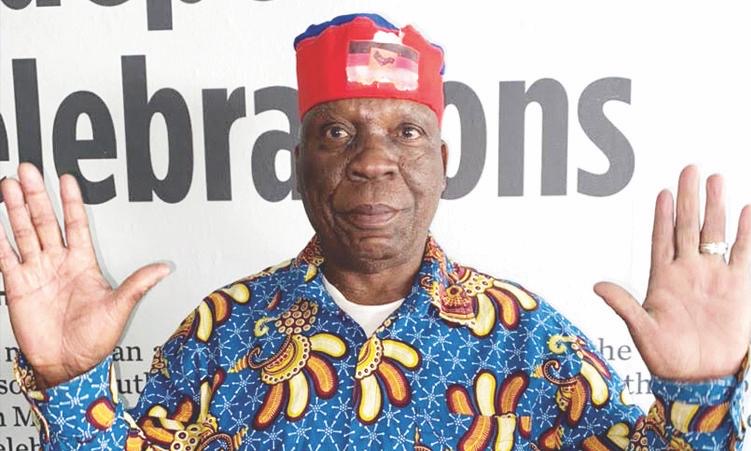ZHENFENG COUNTY – Deep in the mountains of southwest China, an Australian mining company is digging out a steep hillside to create what is expected to be the second largest gold mine in China.
Sino Gold Ltd. hopes to prove to Beijing that it is in China’s interests to open up mining to foreign companies willing to introduce stringent safety standards as well as better social and environmental practices.But the grey-and-white striped ore sought by Sino Gold lies beneath a region that is poor even by the standards of rural China.Average annual income is 1 200 yuan (US$155,50), child mortality is high and hepatitis and tuberculosis are common.In this corner of Guizhou, most of the hopes for the local economy are pinned on Sino Gold’s Jinfeng mine, raising expectations that the company will provide jobs and a range of social services that Zhenfeng county lacks.”Right now, they think we are the government,” said Stuart Gula, who manages the project.Sino Gold is one of two foreign miners with gold mines in China, the world’s fourth largest producer.The other, Canadian rival Eldorado Gold Corp., began commercial production at a gold mine in the remote western province of Qinghai earlier this year.Beijing wants foreign capital for remote mines, while keeping the most valuable deposits for Chinese firms.Most of China’s gold mines are small affairs that pump poisonous arsenic into the air or leak cyanide into the water, killing fish and animals.But Sino Gold says its processes to reuse water, reclaim land and neutralise cyanide in waste will set a new standard for China’s unsafe and polluting mining industry.It is using sulphur-munching bacteria that require a careful equilibration of temperature and oxygen to help isolate the gold.LESSONS LEARNED In developing Jinfeng, Sino Gold is drawing on experience operating a gold mine in Shaanxi, which it sold last year once reserves were depleted.The US$130 million Jinfeng project will produce 180 000 ounces of gold a year once it reaches full operations, and could be further expanded, the company says.The operation is now running at minimal level while it extends the lining of its tailings dam to comply with stricter requirements after a dam breach at a nearby Chinese mine released cyanide-tainted waste.Sino Gold is also developing a new project in northeast China, and exploring elsewhere.The company abandoned exploration rights in an ethnically Tibetan region following a letter-writing campaign by Australian-based Tibet activists in 2003.In Zhenfeng county, about 85 per cent of the people belong to the Buyi ethnic group.Many are illiterate and can’t speak or understand Mandarin Chinese.Impoverished stone villages perch on steep mountains.Thick forests have been cleared for miniscule farm plots and tiny terraces squeezed between limestone turrets.Every inch of flat land is planted.The open pit and tailings dam at Jinfeng have destroyed some of that precious farmland, forcing about 55 households to relocate.But the company says it plans to level waste ore and cover it with soil for re-distribution to farmers, creating a rarity in Guizhou – flat land.The mine’s reclaimed land will have to support more local farmers once a provincial hydropower project to serve the faraway, wealthy city of Guangzhou floods fertile farmland along a nearby river.At the Shaanxi project, farmers protested because they never received land payments made through government channels.To avoid the same problem at Jinfeng, Sino Gold organised a payment ceremony to give legal restitution directly to landholders.Each farmer received a bank book and the choice of taking the payment as a deposit or in cash.To the Australians’ disappointment, nearly every farmer chose cash.Many bought motorbikes, to help ferry sugar cane to market and children to school over the steep mountain paths.Nampa-Reutershopes to prove to Beijing that it is in China’s interests to open up mining to foreign companies willing to introduce stringent safety standards as well as better social and environmental practices.But the grey-and-white striped ore sought by Sino Gold lies beneath a region that is poor even by the standards of rural China.Average annual income is 1 200 yuan (US$155,50), child mortality is high and hepatitis and tuberculosis are common.In this corner of Guizhou, most of the hopes for the local economy are pinned on Sino Gold’s Jinfeng mine, raising expectations that the company will provide jobs and a range of social services that Zhenfeng county lacks.”Right now, they think we are the government,” said Stuart Gula, who manages the project.Sino Gold is one of two foreign miners with gold mines in China, the world’s fourth largest producer.The other, Canadian rival Eldorado Gold Corp., began commercial production at a gold mine in the remote western province of Qinghai earlier this year.Beijing wants foreign capital for remote mines, while keeping the most valuable deposits for Chinese firms.Most of China’s gold mines are small affairs that pump poisonous arsenic into the air or leak cyanide into the water, killing fish and animals.But Sino Gold says its processes to reuse water, reclaim land and neutralise cyanide in waste will set a new standard for China’s unsafe and polluting mining industry.It is using sulphur-munching bacteria that require a careful equilibration of temperature and oxygen to help isolate the gold.LESSONS LEARNED In developing Jinfeng, Sino Gold is drawing on experience operating a gold mine in Shaanxi, which it sold last year once reserves were depleted.The US$130 million Jinfeng project will produce 180 000 ounces of gold a year once it reaches full operations, and could be further expanded, the company says.The operation is now running at minimal level while it extends the lining of its tailings dam to comply with stricter requirements after a dam breach at a nearby Chinese mine released cyanide-tainted waste.Sino Gold is also developing a new project in northeast China, and exploring elsewhere.The company abandoned exploration rights in an ethnically Tibetan region following a letter-writing campaign by Australian-based Tibet activists in 2003.In Zhenfeng county, about 85 per cent of the people belong to the Buyi ethnic group.Many are illiterate and can’t speak or understand Mandarin Chinese.Impoverished stone villages perch on steep mountains.Thick forests have been cleared for miniscule farm plots and tiny terraces squeezed between limestone turrets.Every inch of flat land is planted.The open pit and tailings dam at Jinfeng have destroyed some of that precious farmland, forcing about 55 households to relocate.But the company says it plans to level waste ore and cover it with soil for re-distribution to farmers, creating a rarity in Guizhou – flat land.The mine’s reclaimed land will have to support more local farmers once a provincial hydropower project to serve the faraway, wealthy city of Guangzhou floods fertile farmland along a nearby river.At the Shaanxi project, farmers protested because they never received land payments made through government channels.To avoid the same problem at Jinfeng, Sino Gold organised a payment ceremony to give legal restitution directly to landholders.Each farmer received a bank book and the choice of taking the payment as a deposit or in cash.To the Australians’ disappointment, nearly every farmer chose cash.Many bought motorbikes, to help ferry sugar cane to market and children to school over the steep mountain paths.Nampa-Reuters
Stay informed with The Namibian – your source for credible journalism. Get in-depth reporting and opinions for
only N$85 a month. Invest in journalism, invest in democracy –
Subscribe Now!







